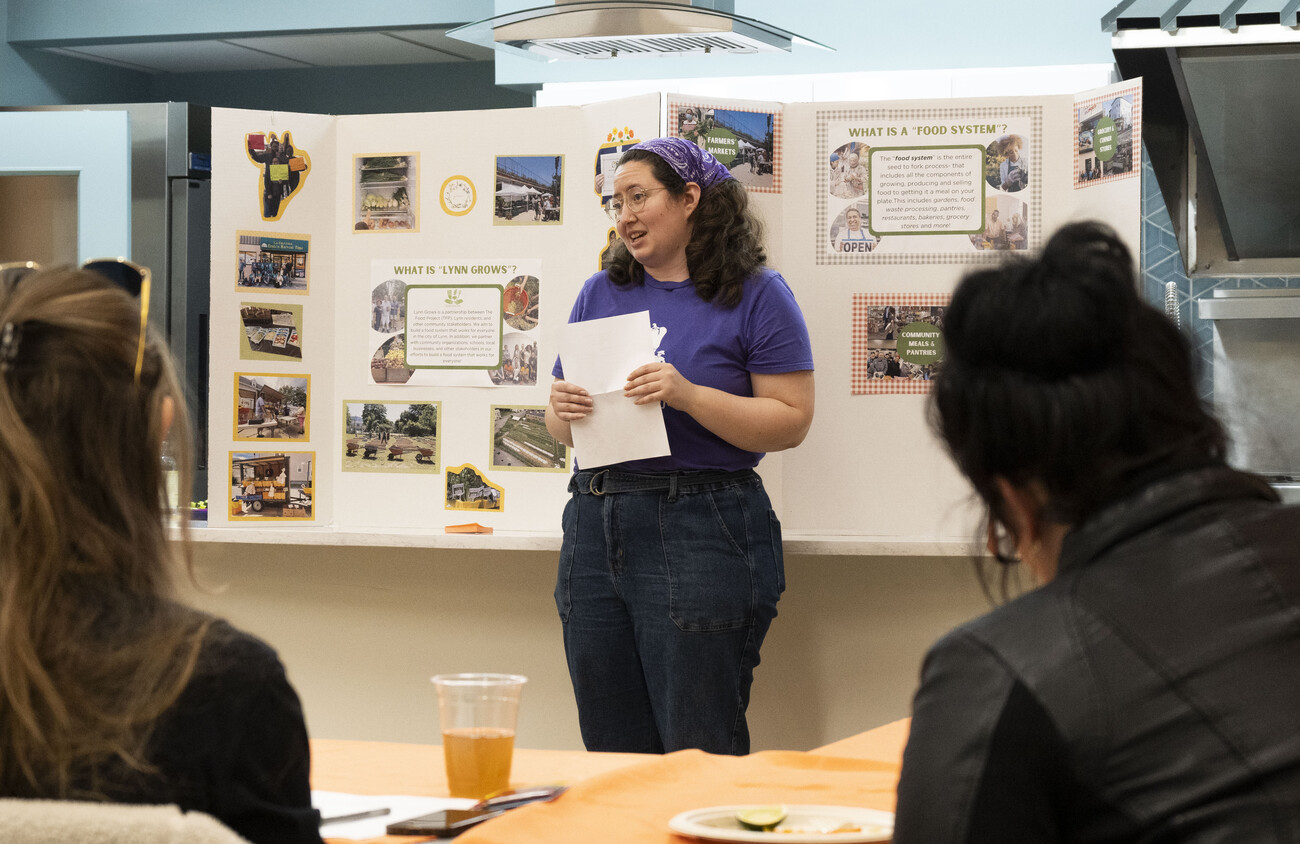
 press-releases
press-releases 
LYNN — Residents and advocates from neighboring communities attended the second of four Growing Change meetings to discuss the city’s food system. The meeting, organized by the Food Project and Lynn Grows, was designed to collect communal feedback and determine the areas of interest for consultation with local government officials.
Food Project North Shore Community Programs Manager Rachel Frazee and Associate Director of Youth Community Programs Adesuwa Usuanlele started the meeting by providing everyone with a healthy meal.
Usuanlele then began a presentation that provided context for the meeting. She mentioned that Lynn Grows started in 2017 and offered many workshop series to discuss the city’s food system with the community.
“Through those workshop series, we learned that there were some priorities that Lynn residents were interested in,” Usuanlele said.
These six priorities were listed for those in attendance: accessibility, affordability, local business, community gardens, school food, and food education.
Those in attendance were then asked to narrow the six goals down to four, reevaluate the community’s priorities, and expand and add new priorities.
“The goal is to figure out what the priorities are and share that with the Food Policy Council in identifying those priorities and talking about the subsets of them,” Usuanlele said.
The attendees included teachers, college students, gardeners, sustainability advocates, and a few moms who wanted their children to have cleaner food options. Each went into detail, and most agreed that all the options were still priorities in some way.
Ashley Pajor, a sustainability specialist and manager at EY, discussed the importance of accessibility and explained that a framework that addresses both the supply and demand aspects of this issue is needed.
“Are you creating a system where appropriate food is able to be provided?” Pajor said. “And then, on the demand side, are you enabling a space where people can access it?”
Carmen Osuna, an MIT student studying circular economy and a member of Lynn Environmental Volunteers, raised the issue of the area’s lack of composting.
Attendees mentioned that in Swampscott, three compost areas are accessible to the public, while none are in Lynn.
“I would like to see composting included in all of those spaces,” Osuna said, referring to the six priorities. “For example, with education, I would like to see compost education.”
Dr. Anne Kelty, a fourth-grade teacher at St. Pius V Catholic School, advocated for food education, particularly for young children.
“One of the things I enforce in STEM is getting them to use measuring cups and measuring spoons because they won’t even know what they are,” Kelty said.
Kelty said she has educated her students on making their food and says that it’s essential for everyone to “educate people on where the food is growing, what the soil is like, and what the end production is like.“
Osuna responded that education should also be prioritized for adults, who determine policies and inform how children view the world. If a child comes home, she said, and a parent disregards what they’ve been taught, the child may not internalize the information.
Frazee announced at the end that the next meeting, which is open to the public, will be from 12 to 2 p.m. on Saturday, May 4 at Phoenix Food Hub. Participants will receive a $25 gift card at each meeting.
People interested in learning more information on the topic or voicing any similar or new concerns can visit https://www.lynngrows.org/about-us .
24World Media does not take any responsibility of the information you see on this page. The content this page contains is from independent third-party content provider. If you have any concerns regarding the content, please free to write us here: contact@24worldmedia.com